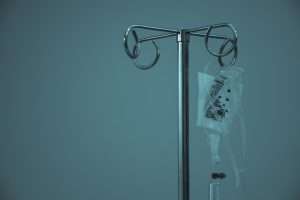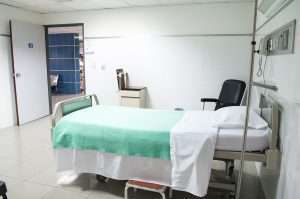FSA medical reimbursement eligible items can transform the way you handle medical expenses for both you and your employees. A Flexible Spending Account (FSA) allows you to pay for out-of-pocket medical expenses with tax-free dollars. This means you can save real money while taking care of essential health needs. Eligible expenses often include:
- Insurance copayments and deductibles
- Prescription medications
- Insulin
- Medical devices
FSAs are a great way to manage healthcare costs efficiently by using pre-tax dollars. This makes it a valuable tool for small to medium-sized business owners committed to providing their workforce with competitive benefits while maintaining financial health.
I’m Les Perlson, and I’ve dedicated my career to making complex insurance options like FSA medical reimbursement eligible items simple and accessible. With my expertise, I aim to help businesses like yours maximize these financial tools effectively.

Important fsa medical reimbursement eligible items terms:
– employer provided fsa
– fsa limits 2024
Understanding FSAs
Flexible Spending Accounts (FSAs) are a smart way to manage healthcare costs. Offered through your employer, these accounts allow you to use pre-tax dollars to pay for various out-of-pocket medical expenses. This means that you can cover necessary health-related costs without the burden of taxes, effectively stretching your healthcare dollars further.
Employer Arrangement
Employers play a crucial role in setting up FSAs. They provide these accounts as part of the benefits package, allowing employees to allocate a portion of their earnings into the FSA before taxes are deducted. This setup not only helps employees save on taxes but also encourages them to plan and budget for healthcare expenses in advance.
Out-of-Pocket Expenses
FSAs are specifically designed to cover out-of-pocket expenses that insurance doesn’t fully cover. This includes costs like copayments, deductibles, and other medical expenses that might otherwise strain your budget. By using an FSA, you can pay for these expenses with money that hasn’t been taxed, providing significant savings over time.
Tax-Free Benefits
The tax-free nature of FSAs is one of their most attractive features. Because contributions are made with pre-tax dollars, your taxable income is reduced, potentially lowering your overall tax liability. This means more of your hard-earned money goes towards healthcare needs rather than taxes.

In summary, FSAs are a beneficial employer arrangement that helps manage out-of-pocket expenses with the added advantage of being tax-free. These accounts are a win-win for both employers and employees, offering a practical way to handle healthcare costs efficiently.
FSA Medical Reimbursement Eligible Items
When it comes to managing healthcare expenses, understanding FSA medical reimbursement eligible items is key. These accounts can cover a variety of costs, effectively reducing the financial burden of healthcare. Let’s explore what you can claim.
Copayments and Deductibles
Copayments and deductibles are common out-of-pocket expenses that FSAs can help cover. These are the amounts you pay when you visit a doctor or receive medical treatment, before your insurance kicks in.
For instance, if you visit your doctor and pay a $20 copayment, or have a $500 deductible for your insurance plan, you can use your FSA to reimburse these costs with pre-tax dollars. This approach saves you money and makes healthcare more affordable.
Prescription Drugs and Insulin
Prescription medications are a significant part of healthcare spending. Fortunately, FSAs can be used to cover these costs. Whether it’s antibiotics for an infection or insulin for diabetes management, FSAs make it easier to afford necessary medications.
For example, if you have diabetes, you can use your FSA to buy insulin and other supplies. By doing so, you save on taxes and ensure you have the medication you need without financial stress.
Medical Devices
Medical devices, ranging from crutches to diagnostic tools, are also eligible for FSA reimbursement. These items are essential for monitoring and improving health, and using FSA funds can ease the financial impact.
Consider a situation where you injure your knee and need crutches. With your FSA, you can purchase the crutches without worrying about the cost, allowing you to focus on recovery.
By leveraging your FSA for copayments, deductibles, prescription drugs, insulin, and medical devices, you can effectively manage healthcare costs. These FSA medical reimbursement eligible items provide a practical way to address various medical needs while maximizing your financial resources.
Next, let’s explore the top eligible medical items you can claim, including prescription medications and medical equipment.
Top Eligible Medical Items You Can Claim
Prescription Medications
When it comes to managing your health, prescription medications are often a necessity. FSAs cover a wide range of these drugs, including those required for chronic conditions. Insulin, for example, is a lifesaver for individuals with diabetes and is fully reimbursable through your FSA. With the rising costs of medications, using pre-tax dollars for these expenses can significantly reduce your financial burden.
Medical Equipment
Your FSA doesn’t just stop at medications. It also covers a variety of medical equipment that you might need. Crutches are a prime example. If you’ve ever had a leg injury, you know how essential crutches can be. Diagnostic devices, like blood pressure monitors, are also covered and are crucial for ongoing health monitoring.
Bandages and other first-aid supplies fall under this category too. Whether you’re treating a minor cut or a more significant injury, having these supplies on hand is invaluable. And with your FSA, you can keep your first-aid kit fully stocked without dipping into your regular budget.
Vision and Dental Care
Your eyes and teeth need care, and FSAs can help with that too. Eyeglasses and contact lenses are eligible for reimbursement. If you wear contacts, you know how quickly the costs can add up. Luckily, your FSA can cover both the lenses and necessary solutions.
Dental work is another area where FSAs shine. From cleanings to more extensive procedures, such as fillings or crowns, many dental expenses are eligible. While cosmetic procedures like teeth whitening aren’t covered, necessary dental work is, helping you maintain a healthy smile without financial strain.
Routine Healthcare
Routine healthcare is about prevention and maintenance. FSAs cover doctor’s visits, ensuring you can see your physician regularly without worrying about the cost. This includes both routine check-ups and necessary hospital expenses if you need more intensive care.
Preventive care is also crucial for long-term health. Regular screenings and vaccinations are eligible for FSA reimbursement. These measures can prevent more severe health issues down the line, making them a wise investment in your well-being.
These FSA medical reimbursement eligible items can significantly ease the financial strain of healthcare. From prescription medications and medical equipment to vision, dental care, and routine healthcare, FSAs offer a practical way to manage these essential expenses.
Next, we’ll discuss how to maximize your FSA benefits, ensuring you make the most of this valuable resource.
Maximizing Your FSA Benefits
Flexible Spending Accounts (FSAs) are a powerful tool for managing healthcare costs, but to truly benefit, you need to strategize. Here’s how to make the most of your FSA funds, especially as the year comes to a close.
End-of-Year Options
As the year wraps up, it’s time to review your FSA balance. Many FSAs follow a “use-it-or-lose-it” rule, meaning any unspent funds could disappear. However, some employers offer more flexible options. You may have a 2.5-month grace period into the new year, giving you extra time to use your remaining balance. Alternatively, you might be able to carry over up to $640 to the next plan year. Check with your employer to see which option applies to your plan.
Spend Wisely
To avoid losing your FSA funds, plan your spending. Here are a few smart ways to use up your balance:
-
Schedule Appointments: If you’ve been postponing doctor’s visits, dental cleanings, or eye exams, now is the time to book them. These routine healthcare expenses are FSA eligible and can help you use up your balance effectively.
-
Stock Up on Essentials: Consider buying over-the-counter medications, bandages, or other first-aid supplies. These items are often needed unexpectedly, and having them on hand is always a good idea.
-
Consider Upcoming Needs: If you or your family have known medical needs on the horizon, like a planned surgery or orthodontics for your child, factor these into your FSA spending plan.
Carry Over
If your employer offers the carryover option, it’s a great way to avoid losing funds. This option allows you to bring up to $640 into the next plan year, ensuring you don’t have to rush any last-minute spending. This flexibility can help you better manage your healthcare expenses over time.
By understanding these options and planning your expenses, you can make sure your FSA funds are used effectively, providing you with significant tax savings and easing the burden of out-of-pocket healthcare costs.
Next, we’ll tackle some frequently asked questions about FSA eligible items, helping you steer the specifics of what can be reimbursed.
Frequently Asked Questions about FSA Eligible Items
What items are reimbursed by FSA?
FSAs cover a wide range of medical expenses, allowing you to use pre-tax dollars to pay for them. Here are some common items that you can claim:
-
Insulin and Prescription Medications: Insulin is a must-have for managing diabetes, and FSAs cover this essential medication. Most prescription drugs are also eligible, helping you manage ongoing health conditions without straining your budget.
-
Medical Equipment and Supplies: Items like crutches, blood sugar test kits, and bandages are reimbursable. These are crucial for managing injuries or chronic conditions.
-
Vision and Dental Care: Need new glasses or contact lenses? These are covered too, along with dental treatments like fillings and orthodontics.
What medical expenses are eligible for FSA?
FSAs are designed to help with out-of-pocket healthcare costs. Here’s a breakdown of eligible expenses:
-
Deductibles and Copays: These are the portions of your medical bills that your insurance doesn’t cover. FSAs can reimburse you for these costs, making healthcare more affordable.
-
Vision Care: Beyond just eyeglasses, FSAs cover eye exams and vision correction procedures like LASIK.
-
Preventive Healthcare: Routine check-ups, vaccinations, and screenings are essential for maintaining health and are all eligible for FSA reimbursement.
How can I use my FSA for dental care?
Dental care is a significant part of healthcare, and FSAs can help cover these expenses:
-
Preventive Expenses: Regular cleanings and exams are essential for preventing dental diseases and are fully reimbursable.
-
Disease Treatment: If you need treatment for gum disease or cavities, FSAs can help cover the costs. However, cosmetic procedures like teeth whitening are not eligible.
By understanding what FSA medical reimbursement eligible items include, you can effectively plan your healthcare spending and make the most of your FSA benefits. This knowledge helps ensure that you’re covering necessary expenses while maximizing your tax savings.
Next, we’ll explore how to make the most of your FSA throughout the year, ensuring you maximize your benefits and avoid losing any funds.
Conclusion
At NPA Benefits, we believe in empowering you with flexible health insurance solutions that prioritize both control and savings. Our expertise in offering cost-saving options means you can steer your healthcare expenses with confidence and ease.
Flexible Spending Accounts (FSAs) are a key part of our offerings, enabling you to pay for a wide range of medical expenses using pre-tax dollars. This not only reduces your taxable income but also helps in managing out-of-pocket costs effectively. Imagine covering your deductibles, copayments, and even routine dental and vision care without the financial strain.
By choosing NPA Benefits, you gain access to a team dedicated to tailoring health insurance plans that fit your unique needs. We understand that every individual and family has different healthcare requirements, and we are here to support you in making informed decisions that optimize both your health coverage and financial wellness.
Explore how our flexible health insurance options can work for you by visiting our Flex Card service page. With NPA Benefits, you’re not just choosing an insurance provider; you’re choosing a partner committed to your health and financial well-being.






